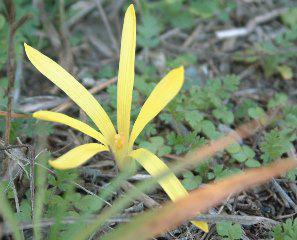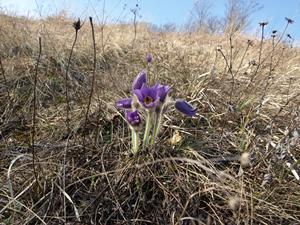Milica Radanovic
The project aims are to determine the population status of S.colchiciflora, P.tenella and P.grandis and the condition of their steppe habitats and to raise public awareness about importance of these species.

Sternbergia colchiciflora. © Goran Anackov.
Vojvodina is located in the northern part of Serbia which includes a part of the Pannonian Plain, where steppe is one of the most typical native habitat types. Steppes in Vojvodina, as throughout Europe, are one of the most endangered habitat types. The disappearance of steppes threatens the characteristic steppe communities and species related to this type of habitat.

Pulsatilla grandis. ©Bojana Bokic.
This project focuses on three endangered plant species growing in steppe habitats, Sternbergia colchiciflora Waldst. & Kit., Prunus tenella Batsch i Pulsatilla grandis Wend. All these taxa are threatened in Serbia and they are also on the European list of endangered species. Active population studies of these protected species, with a purpose of a more quality protection, can give them a key role in serving as flagship species in the protection of their habitats and other endangered taxa.
Project period will be performed in 12 months and it will be conducted in three phases:
1. field work,
2. laboratory work
3. promotional activities.
The focus of this research will be to identify the presence of all three species in the field, determining the population size and status, as well as the condition of habitats where they are growing, and those from which they have vanished, in order to collect as much information as possible for the implementation of quality protection. Results of the research will enable the preparation of the draft plan for the reintroduction of these species in the localities from which they disappeared but are still suitable for reintroduction, which could therefore be implemented in the future. Education of the local population and the public in general about this topic and raising awareness on the relationship towards nature, will be a key factor in long-term maintenance of the project results.